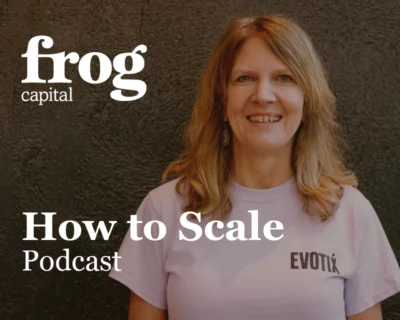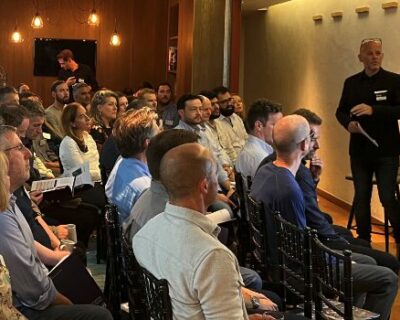In Radical Candor (2017), Kim Scott provides readers with an approach to achieve better results in a better way. Scott knows what she is talking about. After trying her hand as a founder, she was a highly successful manager at Google, where she reported to Sheryl Sandberg. Later, Scott joined Apple in 2010 to create a class on optimal management. More recently, her work as an executive coach and advisor took her inside next-generation tech juggernauts Twitter, Dropbox and Qualtrics, amongst others. Drawing on Scott’s experience, Radical Candor offers a refreshingly honest and clear guide to being a better manager and a better leader.
Relationships sit at the core of Radical Candor. In the long run, the strength of your relationships is what gives you influence and the ability to drive your team forward, not the power associated with your position. With a focus on relationships, Radical Candor comprises a set of frameworks and tools to help you fulfil your role as a leader, to guide a team to achieve a desired result. Using Radical Candor, you can “be a kickass boss without losing your humanity” as you fulfil your three main responsibilities:
- creating a culture of healthy feedback that builds trusting relationships
- developing a high-performing team and supporting team members to achieve their potential, and
- working collaboratively to drive better results
Building Radically Candid Relationships
Relationships between bosses and the people who report to them can be incredibly varied. Radical Candor simplifies this by categorising relationships and feedback along two dimensions: Care Personally and Challenge Directly. Doing both at the same time is how you build strong, radically candid relationships that promote trust.
Care Personally is about being your whole self and caring about each person who works for you. It’s about being more than just professional; it’s about being personal too. It’s about giving a damn and showing it.
Challenge Directly is about being honest and transparent with people, telling them when their work isn’t good enough and when it is. This can lead to tension, but as Former Secretary of State Colin Powell once said, “being responsible sometimes means pissing people off.” Challenging others and inviting others to challenge you shows you care, you’re willing to admit when you’re wrong, and you’re committed to fixing mistakes that you or others have made.
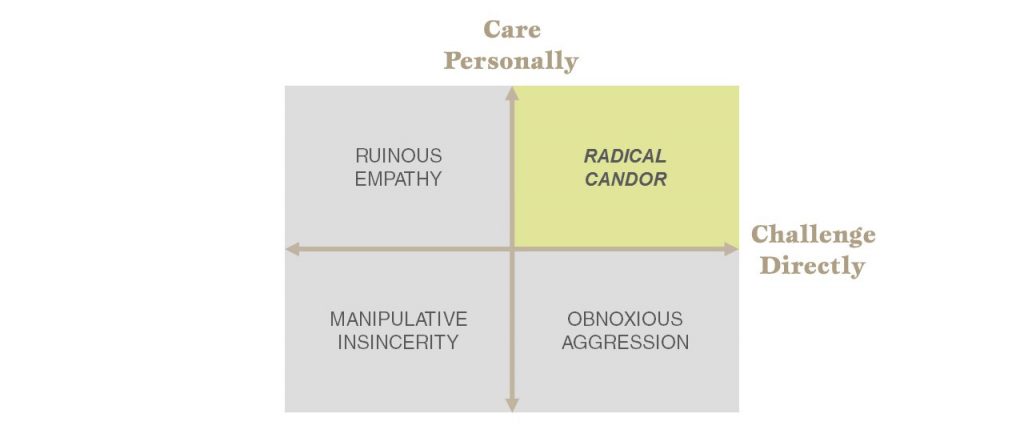
When you Challenge Directly and Care Personally at the same time, you’re acting with Radical Candor. It’s saying what you really think, while at the same time caring about the person you’re saying it to. This type of authentic feedback helps build powerful relationships that enable teams to achieve great things. If you fail to Challenge Directly or Care Personally, or both, your relationships will suffer and underperformance is almost certain.
When you Challenge Directly but don’t Care Personally, you’re acting with Obnoxious Aggression. This happens when your feedback is clear and precise, but your praise is insincere or your criticism is delivered harshly. This may get the job done today, but it will not lead to sustainable progress.
When you Care Personally but don’t Challenge Directly, you’re acting with Ruinous Empathy. Here, you’re being a pacifist. You end up in this unhelpful state when your praise isn’t specific or your criticism is sugar-coated or unclear. It’s difficult to for people to learn from this type of feedback.
When you neither Care Personally nor Challenge Directly, you’re acting with Manipulative Insincerity. Feedback isn’t clear or specific and the delivery isn’t authentic. This is what happens when people act politically and have hidden agendas.
Developing a team to achieve its potential
Building a cohesive and high-performing team is a key responsibility of a leader. Radical Candor provides a framework to develop such a team. As the boss, you need to challenge everyone to do exceptional work, while also caring personally to ensure team members’ roles align with their skills, abilities, interests, ambitions and goals.
A good team has a mix of “superstars”, people on a steep growth trajectory who should be given increasingly greater responsibility, and “rock stars”, people on a gradual growth trajectory who shouldn’t be undervalued. Neither is better than the other, but you need to push both to deliver exceptional work. If a team member’s performance isn’t up to scratch, you have to have a conversation. Challenge directly and give them opportunities to improve. If they don’t, it could be your fault for putting them in the wrong role, or maybe the job isn’t right for the person. Either way, you need to reshape the work or reshape the team.
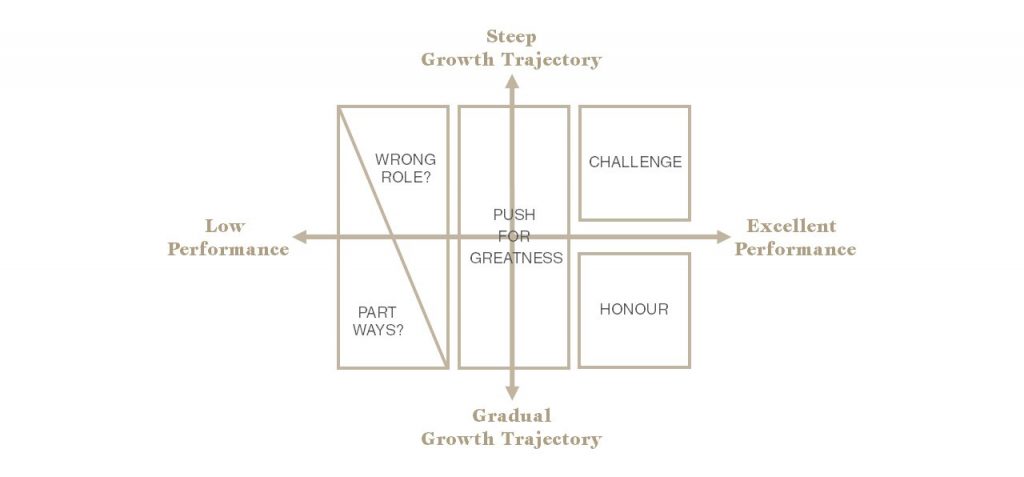
Working Collaboratively to Get Stuff Done
As a leader, getting stuff done does not start with doing stuff. It doesn’t start with telling people what to do either. It starts with getting everyone on your team moving in the same direction. This is more complicated, but it’s how an effective leader gets their team to work collaboratively to achieve results that everyone can be proud of. Radical Candor’s “Get Stuff Done (GSD) Wheel” is a simple yet powerful framework for aligning and guiding the work of a team. When underpinned by radically candid relationships, the wheel spins with less friction and allows teams to deliver remarkable results more quickly.
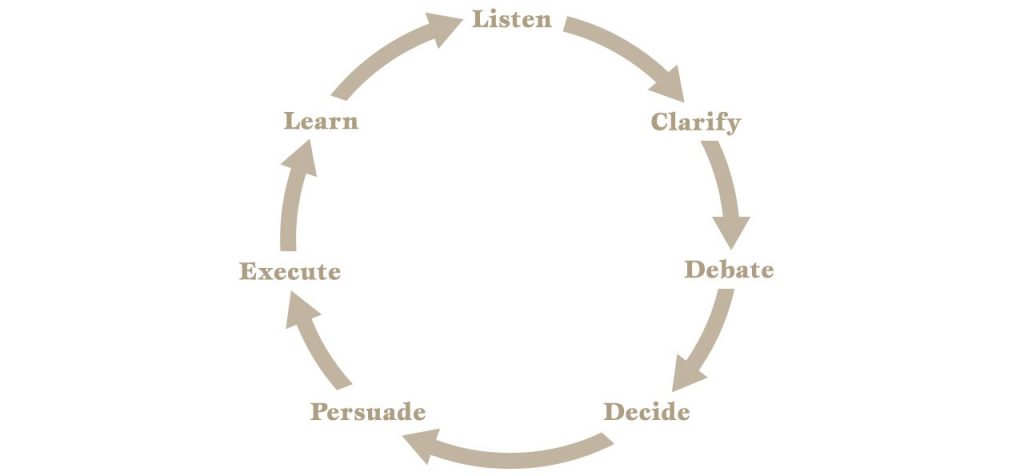
Here is how the GSD Wheel works:
- Listen. Start with an open ear and listen to what people on your team contend are the goals worth pursuing. Encourage new ideas during regular one-on-ones with your team members.
- Clarify. New ideas need to be nurtured and understood deeply before they’re exposed to wider debate. As the boss, it’s your job to push your team to clarify their ideas so they’re crisp and easy for the target audience to comprehend.
- Debate. Having spent time clarifying ideas, it’s tempting to short-circuit the crucial next step of debate. Use this step to refine ideas so they’re more likely to flourish and to lay the groundwork for persuading everyone who needs to execute on the idea.
- Decide. Great bosses need not always be the decision-maker. Instead, they create a clear decision-making process and empower people closest to the facts to decide on ideas. They keep ego out of the equation and, as Jack Dorsey puts it, they “push decisions into the facts”.
- Persuade. Some people may not agree with a decision. Other people that you need to implement the decision may not have been involved until this point. You need to invest time to persuade people that the decision was a good one.
- Execute. Time is a very precious resource. As the boss, you need to protect your team’s time, so they can execute. It’s also important you stay close to the work. Make time to execute personally so you intimately understand what your team is trying to get done.
- Learn. After you execute, it’s important to take a step back and learn from the result. Spend time with your team, learn about the work they’re doing and prepare to start GSD process again.





